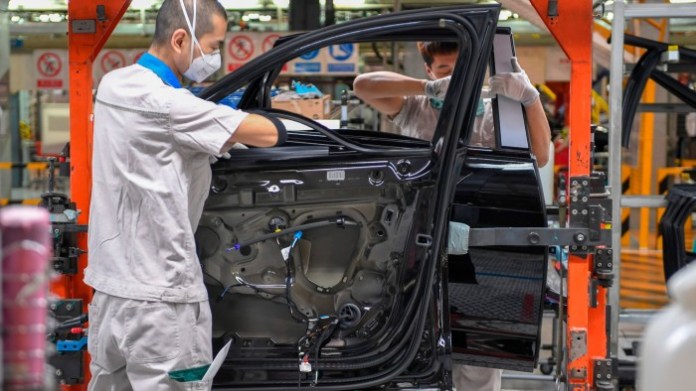[ad_1]
Unlock the White House Watch newsletter for free
Your guide to what the 2024 US election means for Washington and the world
China is willing to engage in “positive dialogue” on trade with the US under a Donald Trump administration, senior trade officials said, a day after Beijing introduced a swath of measures to fortify its exporters ahead of anticipated higher tariffs imposed from Washington.
At a press briefing on Friday, officials said Beijing would remain “steadfast” in resisting protectionist measures. They also pledged to maintain a stable exchange rate despite expectations that Trump’s policies, which include imposing 60 per cent tariffs on Chinese goods, could lead to a stronger dollar.
“China and the United States share strong economic complementarities . . . China is willing to engage in positive dialogue with the US,” Wang Shouwen, international trade representative and vice-minister of commerce, said when asked about the expected Trump tariffs. “At the same time, it remains steadfast in safeguarding its sovereignty, security and development.”
His comments came as Beijing on Thursday announced policies to support its exporters ahead of the start of the Trump administration in January, whose early cabinet appointments indicate it will be particularly hawkish on trade with China.
The commerce ministry pledged to guide Chinese banks in channelling more credit to the export sector and help companies with foreign exchange hedging. In addition, it would “promote the development of cross-border ecommerce” and encourage agricultural exports, helping companies to “actively respond to unreasonable foreign trade restrictions”.
As part of the measures, China would also “attract and facilitate cross-border exchanges of business personnel” through measures such as visa-free travel.
China relies heavily on manufacturing investment and exports to boost an economy that is suffering from weak domestic demand following a prolonged property downturn.
The country’s surging exports, which in dollar terms rose 12.7 per cent year on year in October, have ratcheted up tensions with trading partners from the US and the EU to developing countries.
Brussels accuses Beijing of failing to do enough to stimulate domestic demand and of not removing barriers for foreign companies operating in China or exporting to the Chinese market. China’s imports declined 2.3 per cent year on year in October.
Wang said China’s economy had “already demonstrated remarkable resilience” and that the previous round of tariffs initiated by the US had mainly been borne by American consumers.
Some economists have speculated that China could counter Trump tariffs by allowing a depreciation of the renminbi, which would make Chinese goods more competitive in foreign exchange terms.
If Trump’s tariffs and tax cuts prove to be inflationary, driving up the prices of goods in the US, that could increase the interest rate differential with China and also drive a weakening of the renminbi, they say.
But Liu Ye, director of the international department of the People’s Bank of China, said at Friday’s briefing that the central bank would ensure “the renminbi exchange rate remains fundamentally stable at a reasonable and balanced level”.
China’s President Xi Jinping has called for a stable exchange rate as the world’s largest exporter and manufacturer seeks to portray itself as a reliable trading partner.
[ad_2]
Source link


